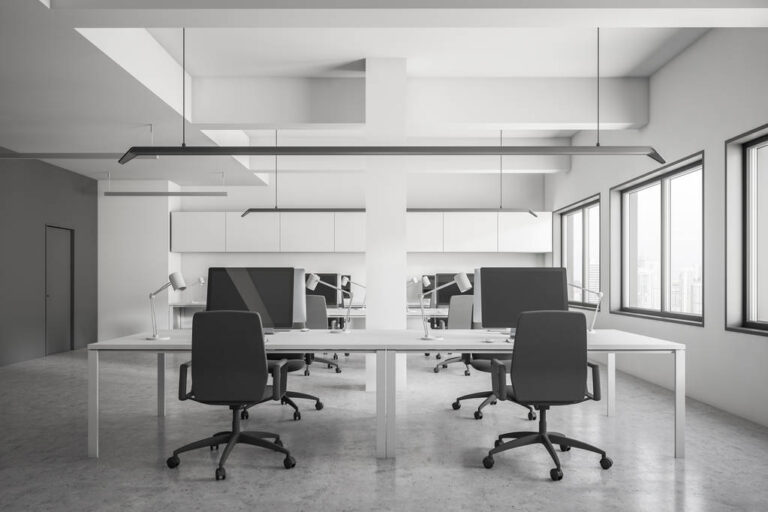The renting office space market is very competitive. In order to be successful, you need to do your research and understand the market you are entering. Be prepared to offer competitive rates and terms, and be flexible with your space requirements.
The benefits of renting office space
There are many benefits to renting office space, including the ability to avoid a long-term commitment, the flexibility to upsize or downsize as needed, and the potential to save money on rent and other costs.
Renting office space can be a more cost-effective option than buying or leasing, especially for small businesses or startups that may not have the capital to make a large investment or clients looking for the best office space for meetings. Additionally, renting gives you the flexibility to move to a different location if your business needs to change.
Another benefit of renting office space is that you don’t have to worry about maintenance and repairs; your landlord will take care of those things for you. This can be a significant advantage if you don’t have the time or resources to handle those responsibilities yourself.
Finally, renting office space can provide certain tax advantages; in some cases, you may be able to deduct your rent as a business expense. Consult with a tax professional to see if this is an option for you.
Whether you’re just starting out or looking for a more flexible option than owning or leasing property, renting office space can be a great solution for your business needs. With so many benefits, it’s no wonder that more and more businesses are choosing
The drawbacks of renting office space
Commercial leasing is a popular option for business owners who want the flexibility to move or change their office space as their company grows. However, there are some potential drawbacks to signing a lease that business owners should be aware of before they make the decision to rent.
One of the biggest drawbacks of renting office space is the lack of control that tenants have over their environment. Landlords typically have the final say in how the property is maintained and updated, which can be a problem if they are not responsive to tenant needs. Additionally, leases usually include provisions that allow landlords to raise rent prices or make other changes that could be detrimental to tenants.
Another downside of renting office space is that it can be more expensive than owning property outright. While businesses may save money in the short term by not having to pay for maintenance and repairs, they will likely pay more in rent over time. In some cases, it may make more financial sense for businesses to purchase commercial property instead of leasing it.
Finally, businesses should be aware of the legal obligations that come with signing a commercial lease. Tenants may be responsible for paying property taxes and insurance and complying with local zoning laws. If a tenant violates their lease agreement, they could face eviction or
How to find the right office space for your business
As your business grows, you may find that you need to move to a bigger office space. But with so many options out there, how do you know which one is right for your business? Here are a few things to consider when searching for office space:
1. Location
When looking for office space, it’s important to consider the location. You want to make sure it’s in a convenient spot for your employees and clients. If most of your clients are local, then you’ll want an office that’s easily accessible from the main roads. But if you have clients coming in from out of town, then you might want an office near the airport or train station.
2. Size
Another important factor to consider is the size of the space. You want to make sure it’s big enough to accommodate all of your employees and equipment, but not so big that it feels empty and cavernous. It’s also important to think about future growth when choosing an office size – will you need more room down the line? If so, try to find a space that can be easily expanded into.
How to negotiate the best lease for your office space
You’ve found the perfect office space for your business. Now it’s time to negotiate the lease. Here are some tips to get the best lease for your office space:
1. Know your needs
Before you start negotiating, know exactly what you need in an office space. This will help you determine what’s important in a lease and what you can compromise.
2. Do your research
Learn about the market rates for office space in your area so you have a good idea of what’s reasonable to pay.
3. Get it in writing
Once you’ve negotiated the terms of the lease, make sure everything is put in writing so there’s no confusion later on.
4. Consider all costs
When negotiating a lease, be sure to consider all costs involved, such as rent, utilities, and maintenance fees.
5. Have a backup plan
If negotiations fall through, have a backup plan in place so you don’t have to settle for inferior office space just because you couldn’t agree on terms with the landlord.
Apart from this, if you are interested to know about Prepare Your House for Winter then visit our Daily Bites category.
